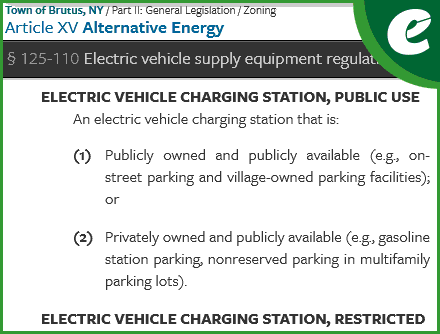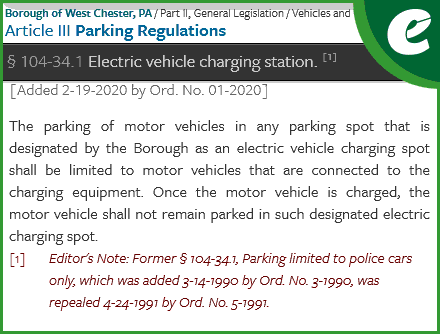Interest in electric vehicles (EVs) is on the rise. Surveys and studies released in the latter part of 2020 show a significant uptick in Americans’ desire to learn more about electric vehicles and to own them. According to a Consumer Reports study, 71 percent of U.S. drivers say they would consider buying one at some point in the future, with nearly a third indicating interest in an EV for their next vehicle purchase.
View sample legislation >
Electric vehicle acceleration
In early 2020, we all began traveling far less than normal. Stay-at-home orders spread across the country (and around the world) in an effort to curb the coronavirus pandemic. Work-from-home became a new way of life for many, while some workers were furloughed or lost their jobs entirely. The result left millions of cars parked in driveways and garages. The auto industry saw its new car sales plummet.
So what has brought about this sudden rise of interest in electric vehicles? A variety of factors could be at play, but there’s some evidence that the COVID-19 experience has brought about a greater concern for the environment. And it’s commonly believed that the more people know and care about a particular issue, the more likely their behaviors will change to decrease their individual impact on the problem.
As folks have remained closer to home and found walks in the park or hikes on nature trails their best and safest options for exercise, maintaining mental health, or just getting out of the house, the environment has gotten a lot more attention. It appears to have even affected our attitudes about cars. Research and anecdotal evidence seems to show environmental awareness increases the likelihood that a buyer will switch to purchasing an electric vehicle.
Is your community EV-Ready?
Leading by example can mean integrating electric vehicles into municipal fleets. It also means establishing a mindset in the community that encourages acceptance of EVs. Legislatively, this includes enacting or amending zoning regulations, parking requirements, and adopting or amending building codes at the local level.
For instance, in New York State, the Village of Fairport (a General Code client community) was designated as the first EVolve NY Accelerator Community for electric vehicle adoption. The aim of the project is to both support Fairport’s goal of reducing greenhouse gas emissions in its community and to be a “first-mover” green community as part of New York’s goals for clean energy and carbon neutrality.
Legislatively, one California city is attempting to affect a new mindset towards EVs and quickening a transition to zero-emission vehicles by banning construction of new gas stations. Other types of regulations to consider include enacting or amending zoning regulations, parking requirements, and adopting or amending building codes at the local level.
Leading with legislation
To accommodate the increasing interest in and use of electric vehicles, many municipalities are combing their municipal codes and updating them accordingly. For instance, zoning changes can provide necessary infrastructure guidance such as placement of public electric vehicle charging stations and EV plug-in sites. Establishing parking requirements so spaces are located near existing power outlets can help reduce cost of electrical installations.
Additionally, the International Code Council recommends adopting or amending building codes that require new builds to have 240V plugs for Level 2 chargers. It appears that most EV charging happens at home, yet most homes don’t already have a Level 2 EV charger installed. If this is the case, homeowners will need to hire an electrician to install a 240V outlet which can be expensive and sometimes isn’t feasible. By requiring new construction to include EV-readiness, it can make life easier for new electric vehicle buyers.
Useful examples from the eCode360® Library
If your community is interested in legislating to help your community become electric vehicle-ready, here are some useful examples that can be found in our eCode360 Library:
Ulster County, NY – Establishing Electric Vehicle Charging Stations
Updating municipal codes is vitally important
With the ever-shifting needs of the COVID-19 era, local governments continue to adjust and transform digitally. Keeping municipal codes updated has become more essential than ever. And providing accessibility to the most current regulations and resolutions is equally important.
We encourage our clients to submit code updates as soon as possible to ensure constituents and local government officials and staff are always referencing and working with the most up-to-date resources. Clients can send legislation to [email protected].
Best practices for managing your codification budget
Many of our client communities find it helpful to be on a code update schedule. This helps to consistently manage their budgets throughout the year. Our Client Care Advocates can work with you and explain the options and benefits of scheduled code updates. Give them a call at 800.836.8834 or send an email to [email protected]. They’d be happy to help or answer any other codification questions you might have.
Resources:
Electric car sales are on the rise – is coronavirus a turning point for the market?
Nurtured by Nature: How the pandemic has intensified our connection to the outdoors
Consumer Reports Survey Shows Strong Interest in Electric Cars
Study: Americans’ interest in EVs has grown during pandemic
Despite pandemic, interest in battery electric vehicles growing in the U.S. and China
U.S. Electric Vehicle Market Poised for Record Sales in 2021, According to Edmunds
Electric vehicles: Setting a course for 2030
Webinar on State and Local Government Experience with Workplace EV Charging
The Electric Mayhem: What Local Governments Must Do to Integrate Electric Vehicles into their Fleets
Join States and Communities Throughout the Northeast and Mid-Atlantic that Are Becoming “EV Ready”
International Code Council to include EV readiness in building codes
Electric Vehicle Municipal Toolkit
Municipal PEV and Charging Equipment Case Studies
Leading by Example: State and Local Governments Are Adopting Electric Vehicles
How local governments can support the transition to Electric Vehicles
Electricity Laws and Incentives in Federal




